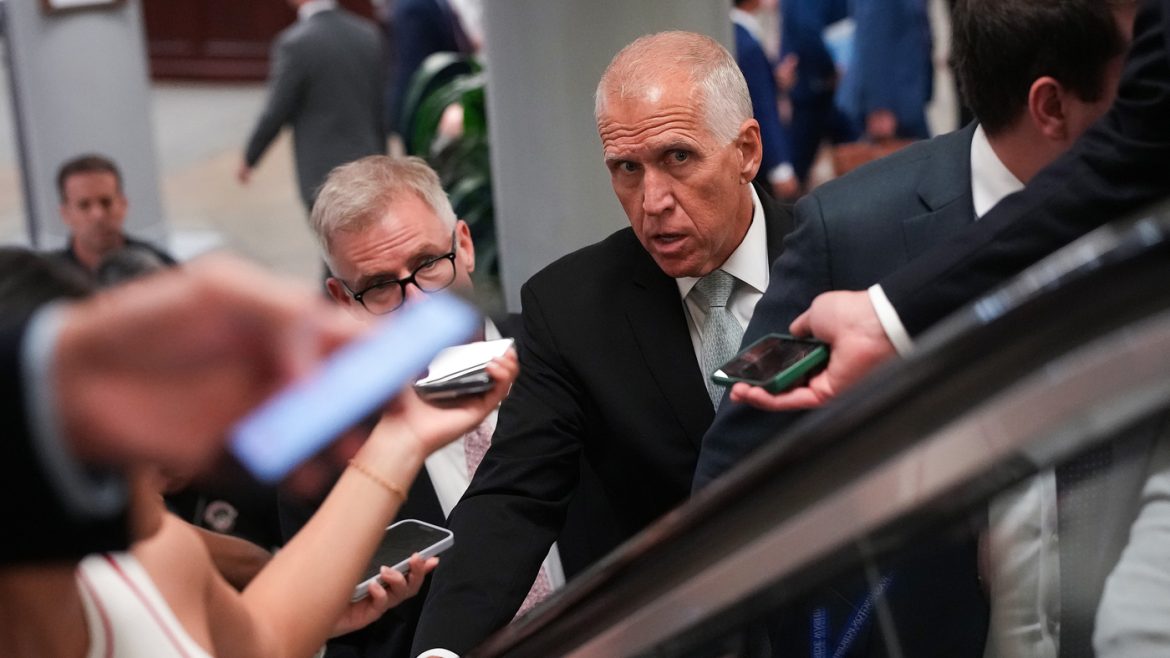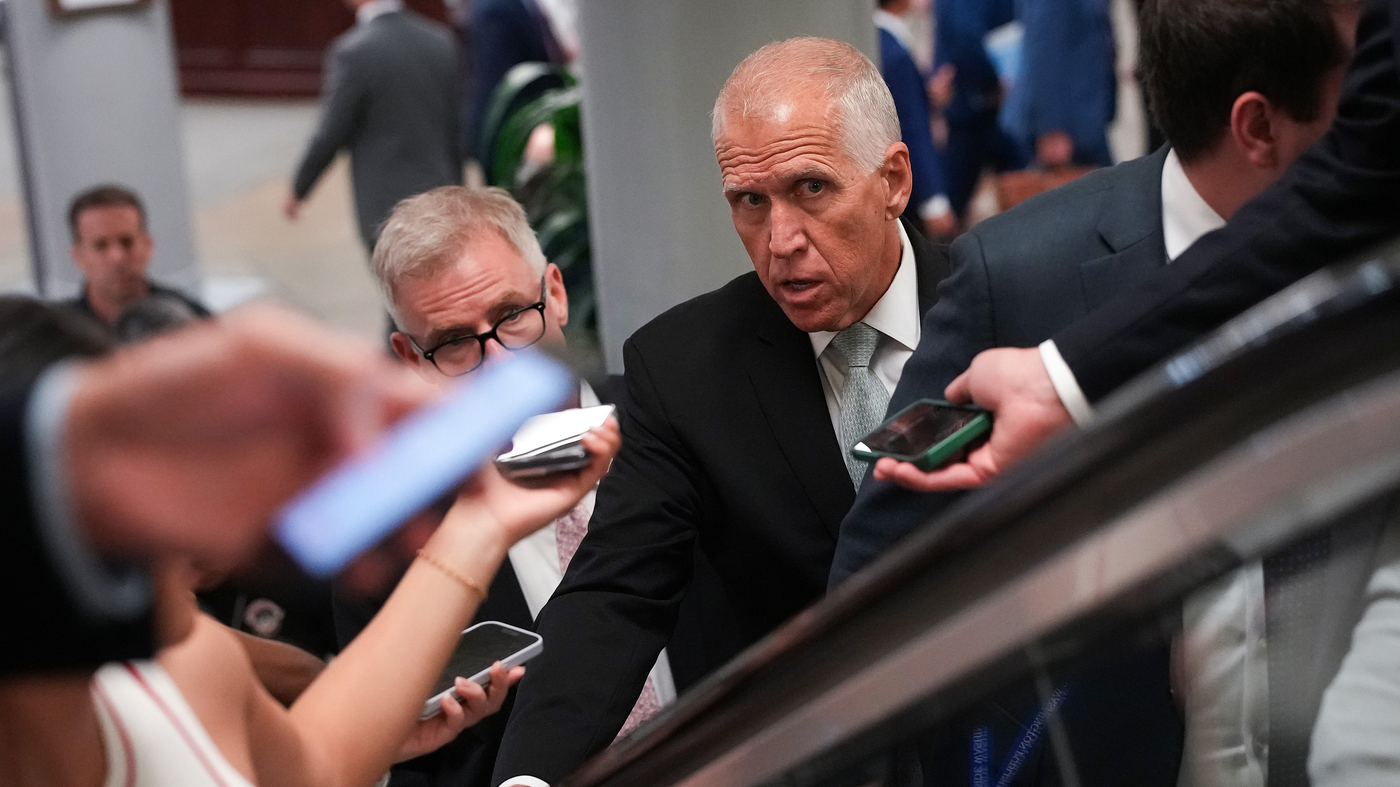The current GOP budget bill, deeply intertwined with President Trump’s domestic agenda, has ignited a fierce debate within the Republican Party and beyond. Central to this controversy are the bill’s fiscal strategies and policy implications, particularly its approach to Medicaid funding and deficit management. While the bill aims to extend the 2017 tax cuts—a cornerstone of Trump’s economic legacy—it also proposes significant cuts to federal spending, including hundreds of billions of dollars from Medicaid. This has led to accusations from some Republican senators that the bill betrays Trump’s promises, particularly his assurance that Medicaid would remain untouched. The debate underscores a broader tension within the GOP between fiscal conservatism and social responsibility, as well as the political risks of alienating voters who rely on public health services.
The Core of the GOP Budget Bill
The GOP’s budget bill is ambitious in its scope, primarily focused on extending the 2017 tax cuts, which were a major achievement of Trump’s first term. These tax cuts, which provided relief to both individuals and businesses, are central to the Republican economic narrative. The bill’s proponents argue that extending these cuts will continue to stimulate economic growth and investment, benefiting taxpayers and the broader economy. However, the financing strategy for these tax cuts has become a point of contention. To offset the costs, the bill proposes deep cuts to federal spending, with Medicaid bearing the brunt of these reductions. The proposed cuts to Medicaid—amounting to hundreds of billions of dollars—have drawn sharp criticism, particularly from those who view the program as a critical safety net for vulnerable populations.
Breaking Trump’s Medicaid Promise?
One of the most vocal critics of the bill within the Republican Party is Senator Thom Tillis of North Carolina, who has accused the bill of betraying Trump’s promise to protect Medicaid. During his campaign and presidency, Trump repeatedly assured voters that Medicaid would not be cut, framing his fiscal policies as a way to eliminate “waste, fraud, and abuse” rather than reducing essential services. However, the bill’s proposed cuts to Medicaid have been interpreted by many as a direct contradiction of this promise. This has created a rift within the GOP, with some senators arguing that the bill undermines Trump’s credibility and risks alienating voters who rely on Medicaid for healthcare. The debate highlights a fundamental tension within the party between the desire for fiscal restraint and the need to maintain social programs that support vulnerable populations.
Internal GOP Divisions and Deficit Concerns
The budget bill has also exposed significant divisions within the Republican Party, particularly regarding the national deficit. Senators like Rand Paul and Ron Johnson have expressed reservations about the bill’s impact on the deficit, with Paul vowing to vote against it over concerns about increasing debt. Johnson has criticized the bill for failing to significantly control spending and deficit growth, despite its extension of tax cuts. These concerns reflect a broader debate within the GOP about balancing tax policy goals with prudent fiscal management. Johnson has proposed an alternative approach, suggesting that the bill be broken down into smaller, more manageable components to address spending more effectively. However, this proposal has faced resistance from Republican leadership, which is pushing for a comprehensive, sweeping package.
Legislative Process and Political Calculations
The legislative process surrounding the budget bill has been marked by urgency and strategic timing. Senate Majority Leader John Thune has set a deadline for a Saturday vote, reflecting the leadership’s desire to advance the bill despite internal reservations. The amendment process in the Senate provides a venue for expressing these disagreements, but it also risks delaying or derailing the legislation if consensus cannot be reached. House Republicans have already passed the bill, but they now face the challenge of coordinating with the Senate’s modifications. The “big, beautiful bill” label, used by Trump himself, underscores the political significance of this legislation as a signature GOP economic and policy agenda item. However, the bill’s fate remains uncertain, as Republican leaders work to marshal enough votes to secure its passage.
The Fiscal Reality and Political Repercussions
Critics from both sides of the aisle view the bill as a potential “debt bomb,” signaling a spike in the national deficit driven by extended tax cuts without equivalent spending restraint. This outcome could complicate the GOP’s efforts to present itself as a responsible steward of the economy, particularly ahead of looming elections. Moreover, the proposed cuts to Medicaid threaten to undermine Trump’s coalition of working-class and rural voters who depend on these services. This risk adds political complexity to the budget bill’s fate, as Republican leaders must balance policy ideals with voter expectations. The bill’s potential impact on the national debt and social programs like Medicaid could have lasting repercussions for the GOP’s political standing and its ability to deliver on its economic promises.
Conclusion: A Defining Moment for GOP Fiscal Policy
The GOP budget bill represents a defining moment for the Republican Party’s fiscal policy, encapsulating the challenges of delivering on tax promises while managing the national deficit and protecting essential social programs. The debate over the bill underscores the fragility of party unity in a polarized legislative environment, as senators grapple with the implications of the proposed cuts and the political risks they pose. Whether the bill succeeds in delivering on its promises or fractures the party’s cohesion, it will remain a pivotal episode in the ongoing dialogue about America’s fiscal future and the limits of tax-and-spend ideology. The outcome of this debate will shape public perception of Trump’s legacy and test the GOP’s ability to reconcile divergent fiscal philosophies in the pursuit of economic growth and social responsibility.


